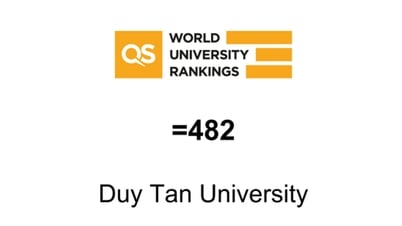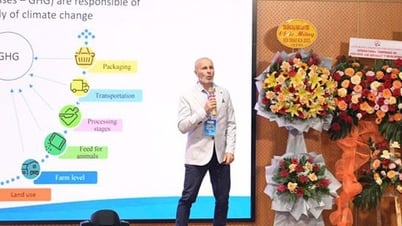About 40-50% of graduates in the US work in jobs that do not require a college degree in retail, construction..., and may be stuck there for life.
The information comes from a report by the Burning Glass Institute and Strada Education, released this February. The report is based on occupational data of 60 million Americans, from 2012 to 2022. Of these, 10.8 million have bachelor's degrees.
As a result, 52% of graduates were unemployed in the first year after graduation. After 5 and 10 years, this rate remained at 45%. These people mainly worked in positions that only required a high school diploma, such as janitors, retail, or manual labor in construction, transportation, and manufacturing.
The median salary for this group is $40,000 a year, 25 percent higher than that of workers with only a high school diploma ($32,000). However, it is 50 percent lower than that of graduates who find jobs requiring a college degree.
Internship experience and major are two key factors that determine a bachelor's degree's employment after graduation. Specifically, students who have at least one internship reduce the risk of not finding a job in their major by 48%.
In terms of major, students in the fields of Public Security, Recreation and Health Studies have the highest risk of unemployment (60-68%), while this rate is lower for bachelor's degrees in Business (Finance, Accounting), and Health .
Or in the same field of Business, Marketing and Human Resources students are twice as likely to be unemployed as Accounting or Finance students. In addition, students majoring in Communications, Journalism, and Psychology all have unemployment rates of over 50%.
A STEM degree ( Science , Technology, Engineering, Mathematics) isn’t always a “golden ticket” to a college-level job, according to the Wall Street Journal, which cites data showing that 47 percent of Biology and Biomedical Sciences graduates are still unemployed five years after graduation.
The report also found that the first job after graduation affects each person's future career.
“If a U.S. college graduate’s first job is in a low-paying field or one that doesn’t match their interests, they are at risk of being stuck in that job,” the report said. Of those who were underemployed, 73 percent were still underemployed 10 years later.
According to CBS, that could be because employers often focus on a candidate's work experience and most recent job, rather than looking at their existing qualifications.
“If you graduate, work as a waiter for a few years, and then apply for a college-level job, employers look at that work experience and don’t see the relevance,” says Matt Sigelman, CEO of The Burning Glass. He notes that sticking with a job in your field also increases your chances of landing a high-paying position. Getting ahead can be difficult if new graduates don’t start their careers off on the right foot.
The report's findings have sparked debate about the value of a universityeducation , amid soaring costs and doubts about the relevance of training to the needs of employers.
“It's not that degrees aren't valuable, it's that they're valuable to too few people,” Sigelman says.
Doan Hung ( According to Business Insider, CBS, WSJ, Strada Education )
Source link










































































































Comment (0)